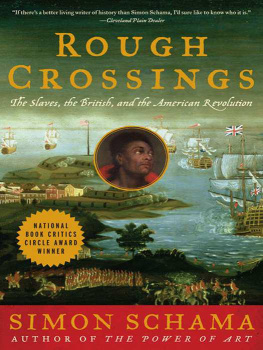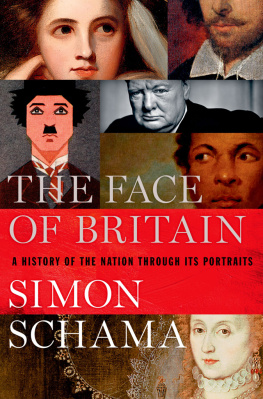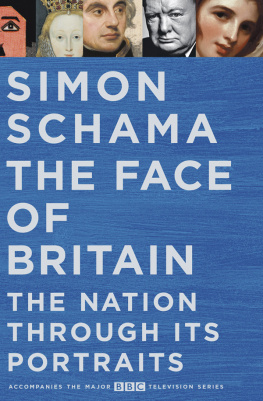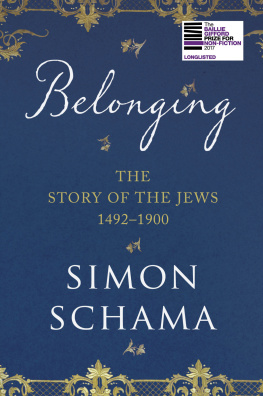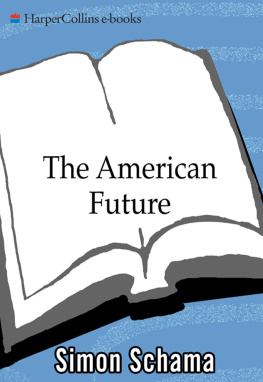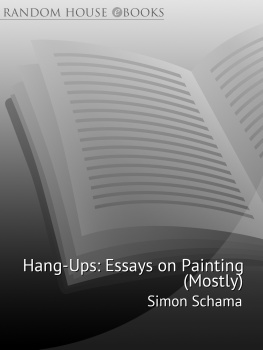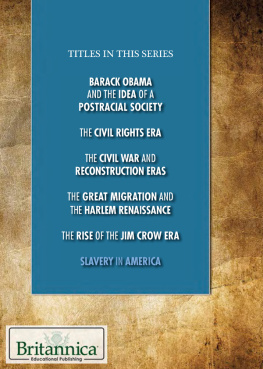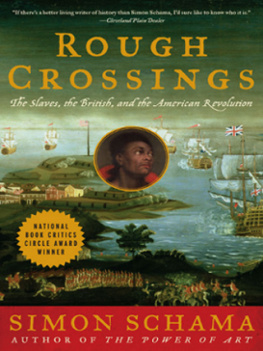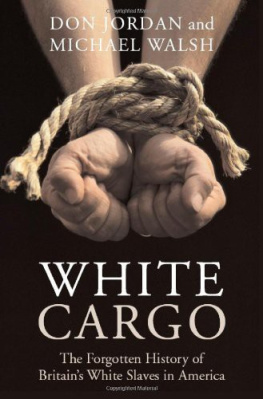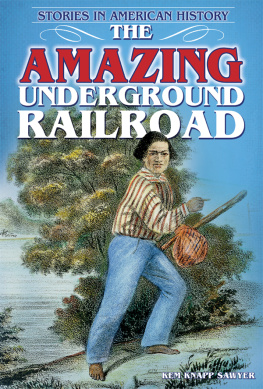Simon Schama
Rough Crossings
Britain, the Slaves and the
American Revolution

for LISA JARDINE ,
my idea of an historian
Henry Washington, escaped slave of George Washinton, freed by British, later settler in Nova Scotia and Sierra Leone
Granville Sharp, leading British abolitionist and instigator of first black settlement in Sierra Leone
William Sharp, brother of Granville, surgeon to King George III and to London poor
William Murray, Lord Chief Justice Mansfield, responsible for seminal rulings on legal status of slaves in Great Britain
Jonathan Strong, Thomas Lewis, James Somerset: escaped slaves in London, victims of abduction and subjects of court cases brought by Granville Sharp
Henry Laurens, South Carolina Patriot, merchant, delegate to and president of the Continental Congress
John Laurens (son of Henry), aide-de-camp to George Washington, abolitionist officer in Continental army
Anthony Benezet, Quaker American in Philadelphia, correspondent with Granville Sharp
Thomas Jeremiah, free African-American in Charleston, hanged for alleged conspiracy to raise slave insurrection
John Murray, Lord Dunmore, last British governor of Virginia, responsible for 1775 proclamation offering freedom to slaves of Patriots in return for military service with the Royal Army
Lord William Campbell, last British governor of South Carolina
Thomas Peters, sergeant in the British Black Pioneers, settler in Nova Scotia and Sierra Leone
Moses Wilkinson, blind Methodist preacher in Birchtown, Nova Scotia
Mary Perth, escaped slave from Virginia, freed by British, settler in Sierra Leone
John Kizell, son of Sherbro chief, escaped slave, loyalist soldier in American volunteers, North Carolina, settler in Sierra Leone
James Moncrief, British officer in siege of Savannah commanding black loyalist soliders and sappers
General Sir Henry Clinton, British commander-in-chief in America, patron and protector of British Black Pioneers
David George, African-American Baptist minister, escaped slave, free settler with his wife Phyllis, in Novia Scotia and Sierra Leone
General Lord Charles Cornwallis, British military commander in America
Boston King, and his wife Violet, escaped slaves, loyalist settlers in Nova Scotia and Sierra Leone
Colonel Tye, former slave in Monmouth County New Jersy, loyalist partisan leader
Stephen Blucke, free African-American, settler in Nova Scotia
Murphy Steele, sergeant in the Black Pioneers, friend of Thomas Peters
Olaudah Equiano aka Gustavus Vassa, London abolitionist, author of The Interesting Narrative of Olaudah Equiano the African (1789)
Sir Charles Middleton, MP, abolitionist and Comptroller of the Royal Navy
James Ramsay, British naval surgeon turned clergyman and abolitionist
Thomas Clarkson, leading British abolitionist
Sir Guy Carleton, last commander-in-chief of British force in America, later Governor of Canada
Brigadier Samuel Birch, commandant of British garrison in New York, signatory of passport, certificate confirming freedom of black loyalists
Benjamin Whitecuffe, Long Island black farmer, loyalist spy for the British
William Wilberforce, member of Parliament for Hull and parliamentary leader of campaign to abolish the slave trade
Jonas Hanway, British reformer and philanthropist
Henry Smeathman, British scientist and eccentric, original proposer of Sierra Leone as site for black settlement
Thomas Boulden Thompson, commander of fleet carrying first settlers to Sierra Leone
Alexander Falconbridge, former slave-ship surgeon, agent in Africa for St Georges Bay (later the Sierra Leone) Company
Anna Maria Falconbridge, Alexanders wife, author of A Narrative of Two Voyages to the River Sierra Leone in the years 17913
King Tom, Temne chief in Sierra Leone
The Naimbana, paramount chief in Robana, Sierra Leone
King Jimmy, Temne chief in Sierra Leone, destroyer of Granville Town Sir John Parr, governor of Nova Scotia
Lieutenant John Clarkson, British naval officer, subsequently abolitionist and governor of second black settlement in Sierra Leone
Michael Wallace, entrepenuer, landowner and council member in Halifax, Nova Scotia
Benjamin Marston, Harvard-educated ex-merchant, surveyor in Shelburne, Nova Scotia
Henry Thornton, evangelical banker and abolitionist, first chairman of the Sierra Leone Company
Lawrence Hartshorne, Quaker merchant, Clarksons friend in Nova Scotia
Dr. Charles Taylor, surgeon appointed by the Sierra Leone Company to accompany the black fleet to Africa
Cato Perkins, black Methodist preacher, settler in Nova Scotia and Sierra Leone
Stephen Skinner, New Jersey loyalist and Shelburne settler
Captain Jonathan Coffin, master of the Lucretia , John Clarksons flagship
Isaac Dubois, American loyalist, Carolinan cotton planter, settler in Sierra Leone, friend of Clarkson
Isaac Anderson, free black carpenter from Charleston, settler in Sierra Leone, militant campaigner for black rights
Nathaniel Wansey, leader, with Isaac Anderson, of revolt against goverment of Sierra Leone
William Dawes, acting governor of Sierra Leone after John Clarkson
Zachary Macaulay, governor of Sierra Leone, father of the historian Thomas Babington Macaulay
Thomas Ludlam, fourth governor of Sierra Leone
Paul Cuffe, free black, landowner, trader with Sierra Leone, Quaker and abolitionist
Frederick Douglass, escaped slave-turned-abolitionist orator
The Hutchinson Family singers: Jesse, Abby, Judson and Asa, white religious and folk singers, abolitionist fellow passengers with Douglass on SS Cambria
Captain Charles Judkins, ex-slaver turned abolitionist, master of Cunarder SS Cambria
T EN YEARS after the surrender of George IIIs army to General Washington at Yorktown, British Freedom was hanging on in North America. Along with a few hundred other soulsScipio Yearman, Phoebe Barrett, Jeremiah Piggie and Smart Feller among themhe was scratching a living from the stingy soil around Preston, a few miles northeast of Halifax, Nova Scotia.1
Like most of the Preston people, British Freedom was black and had come from a warmer place. Now he was a hardscrabbler stuck in a wind-whipped corner of the world between the blue spruce forest and the sea. But he was luckier than most. British Freedom had title to forty acres, and another one and a half of what the lawyers clerks in Halifax were pleased to call a town lot.2 It didnt look like much of a town, though, just a dirt clearing with rough cabins at the centre and a few chickens strutting around and maybe a mud-caked hog or two. Some of the people who had managed to get a team of oxen to clear the land of bald grey rocks grew patches of beans and corn and cabbages, which they carted to market in Halifax along with building lumber. But even those who prosperedby Preston standardstook themselves off every so often into the wilderness to shoot some birch partridge, or tried their luck on the saltwater ponds south of the village.3
What were they doing there? Not just surviving. British Freedom and the rest of the villagers were clinging to more than a scrap of Nova Scotia; they were clinging to a promise. Some of them even had that promise printed and signed by officers of the British army on behalf of the king himself, that the bearer so-and-so was at liberty to go wherever he or she pleased and take up whatever occupation he or she chose. That meant something for people who had been slaves. And the kings word was surely a bond. In return for their loyal service in the late American war, the Black Pioneers and the rest of them were to be granted two gifts of unimaginably precious worth: their freedom and their acres. It was, they told themselves, no more than their due. They had done perilous, dirty, exhausting work. They had been spies amidst the Americans; guides through the Georgia swamps; pilots taking ships over treacherous sandbars; sappers on the ramparts of Charleston as French cannonballs took off the limbs of the men beside them. They had dug trenches; buried bodies blistered with the pox; powdered the officers wigs; and, marching smartly, drummed the regiments in and out of disaster. The women had cooked and laundered and nursed the sick; dabbed at the holes on soldiers bodies; and tried to keep their children from harm. Some of them had fought. There had been black dragoons in South Carolina; waterborne gangs of black partisans for the king on the Hudson River; bands of black guerrillas who would descend on Patriot farms in New Jersey and take whatever they could, even (if the Lord was smiling on their venture) white American prisoners.

